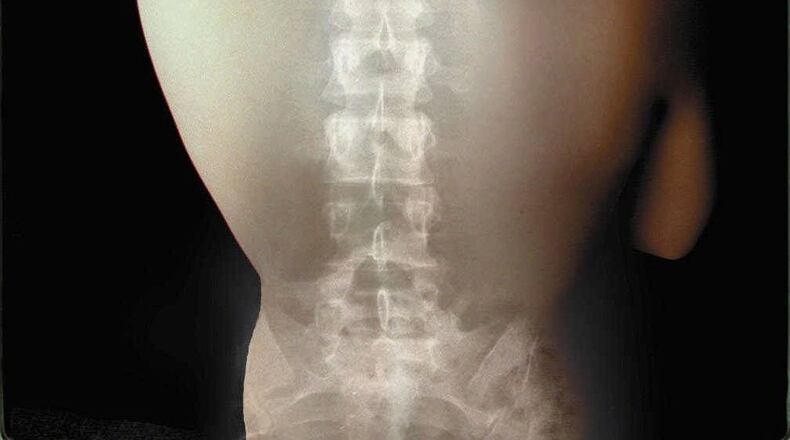The ‘heart attack of the skeleton’
Those suffering with osteoporosis have a greater risk of breaking a bone, particularly during everyday activities. And they often don’t learn they have osteoporosis until they break a bone. That’s why it’s sometimes referred to as “the heart attack of the skeleton.”
Dr. David Houserman a resident orthopedic surgeon with Kettering Health, compares osteoporosis to a heart disease. “People might not know they have heart disease until they have a heart attack. Osteoporosis is like that,” he says. “It’s silent, and we might not know about it until the person suffers a fracture.”
Risk factors
Osteoporosis affects many people: 1 in 2 women and 1 in 4 men. Some risk factors aren’t under your control. These include
• Sex: Women are at higher risk than men because of the hormonal changes of menopause.
• Age: The older you are, the greater your risk.
• Body size: Small, thin-boned women are at greater risk.
• Ethnicity: White and Asian women have a higher risk than African American and Hispanic women.
• Family history: People whose parents have a history of fractures also seem to be at increased risk.
Improving bone density
Diet and lifestyle pose the greatest risks as well as the best opportunities to avoid it.
“The good news is that there are many steps that everyone can take to help prevent this disease,” says Lauren Rode, a physician assistant with Kettering Health. She recommends:
- Avoid smoking, or stop smoking if you do smoke.
- Avoid drinking alcohol.
- Eat a diet rich in calcium and vitamin D.
- Exercise regularly with weights.
DEXA scans
Osteoporosis is typically found during a screening, specifically a DEXA scan (dual-energy X-ray absorptiometry). Used to measure bone density, a DEXA scan every two years is recommended for women 65 years old or older, and for men 70 and older.
“We diagnose fractures on a daily basis, so we have an excellent opportunity to screen patients for osteoporosis and connect them with the resources they need to help prevent future fractures,” says Lauren. “Our goal is to help empower patients to make positive decisions about their bone health.”
Talk to your doctor about getting a DEXA scan. To request an appointment with a Kettering Health orthopedist, visit ketteringhealth.org/ortho or call 937-384-3827.
About the Author

